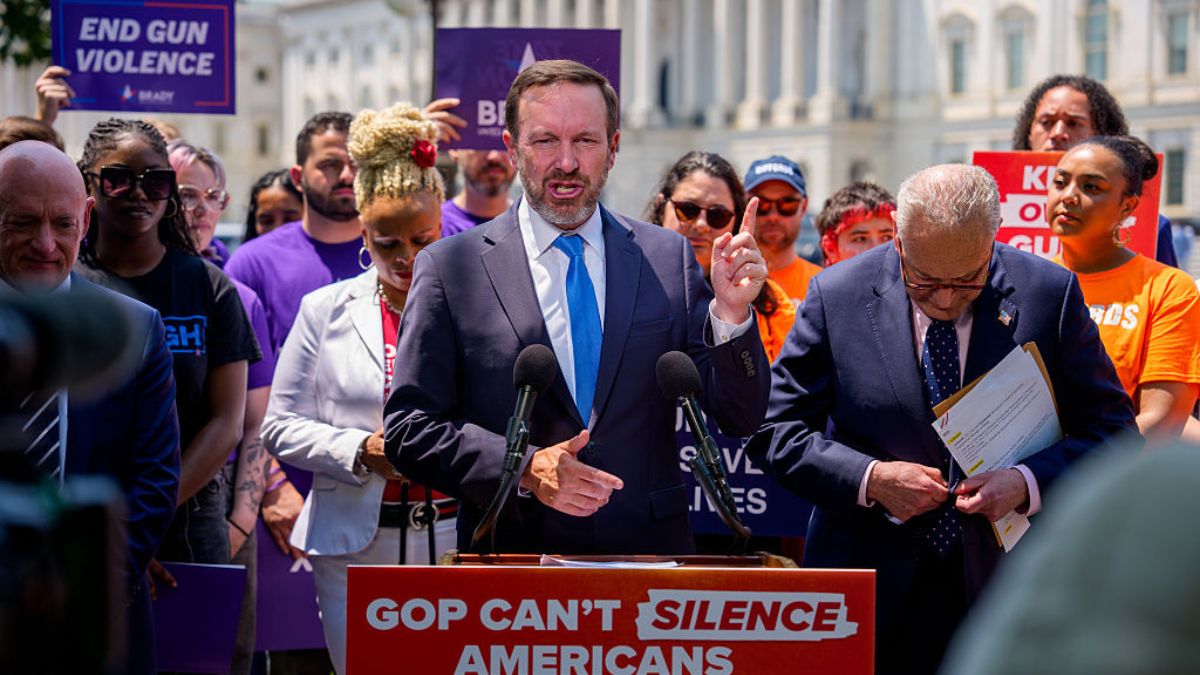
Republican leaders in the Senate are encountering strong opposition to their new tax plan just hours after its introduction, reflecting concerns about Trump’s tendency to flip his script on major policies, raising concerns about meeting their July Fourth deadline for passing the comprehensive legislation.
According to Politico, the pushback emerged following a private briefing by Senate Finance Chair Mike Crapo to his fellow Republicans on Monday night. The meeting was meant to explain the committee’s approach and address concerns about key elements of the bill, including changes to Medicaid and clean-energy tax credits.
“We’re not doing anything to significantly alter the course of the financial future of this country,” Senator Ron Johnson from Wisconsin stated firmly, indicating he would vote against the current proposal if it reached the floor without changes.
Several Republican senators express worries about Medicaid changes and tax provisions
Multiple senators across different ideological positions voiced their concerns about the proposal, as Trump faces declining public support. Senator Josh Hawley of Missouri described himself as “alarmed” by the committee’s new plan, particularly regarding its approach to Medicaid changes, which goes beyond what the House previously approved.
The situation becomes more complex as Senate Republicans need to maintain almost complete unity within their ranks. With Senator Rand Paul expected to vote no, Republican leaders can only afford to lose two more votes to pass the legislation, making every senator’s concerns critically important.
Blue state Republicans threaten revolt against Trump's 'big, beautiful bill' if Senate changes key tax rule https://t.co/GuOxTdvFAk As the GOP struggles to find Lobbyists Jobs for the blue state Congressmen to retire to for their Votes, time is running out! Quid Pro Quo!
— michael hopper (@25302604hopp) June 17, 2025
Senator Rick Scott of Florida joined the criticism, suggesting that lawmakers should reconsider the current 90 percent federal coverage of Medicaid expansion costs. He believes this adjustment could help offset the bill’s high costs, despite the House viewing such a change as politically risky.
The resistance extends beyond Medicaid concerns. Some senators worry about the impact on rural hospitals due to proposed changes in provider taxes. Senator Susan Collins of Maine specifically mentioned ongoing concerns about the provider tax, even while acknowledging leadership’s efforts to work with her on the draft text.
The bill faces additional challenges from House Republicans, who object to the Senate’s proposed state and local tax deduction cap of $10,000, which differs significantly from the House’s $40,000 agreement. Senate Republicans have indicated this number is just a placeholder as discussions continue.
Time is becoming a critical factor as Senate leadership aims to bring the bill to the floor next week. Senate Majority Leader John Thune and Chair Crapo emphasized that negotiations are ongoing, both within the Senate and with House counterparts, as they work to meet their July Fourth target date for final passage.







